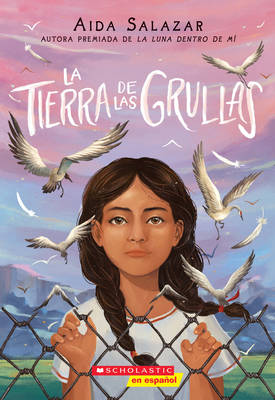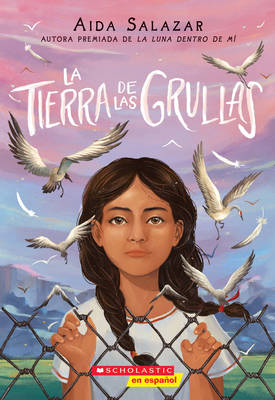
- Retrait gratuit dans votre magasin Club
- 7.000.000 titres dans notre catalogue
- Payer en toute sécurité
- Toujours un magasin près de chez vous
- Retrait gratuit dans votre magasin Club
- 7.000.000 titres dans notre catalogue
- Payer en toute sécurité
- Toujours un magasin près de chez vous
Description
Betita, de nueve anos, sabe que es una grulla. Papi le conto la historia desde antes que su familia emigrara a Los Angeles buscando refugio de la guerra del narco en Mexico. Los aztecas procedian de un lugar llamado Aztlan, en lo que es hoy el sureste de Estados Unidos, cuyo nombre significa "tierra de las grullas", y establecieron su gran ciudad en el centro del universo: Tenochtitlan, la actual Ciudad de Mexico. Cuenta una profesia que su gente regresaria un dia a vivir entre las grullas en la tierra prometida. Papi le dice a Betita que ellos son grullas que han regresado a su hogar.
Un dia, el querido padre de Betita es arrestado por el Servicio de Control de Inmigracion y Aduanas y deportado a Mexico. Betita y su mama ingravida se quedan solas, pero finalmente son tambien detenidas y deben aprender a sobrevivir en un campamento de detencion de familias en las afueras de Los Angeles. Incluso en estas condiciones crueles e inhumanas, Betita encuentra amparo en su propia poesia y en la comunidad que ella y su madre encuentran en el campamento. Las voces de sus companeros en busca de asilo vuelan por encima del odio que los mantiene enjaulados y que amenaza cada dia con hacerlos caer mas bajo de lo que jamas imaginaron. ¿Podran Betita y su familia volver a ser una sola?
Nine-year-old Betita knows she is a crane. Papi has told her the story, even before her family fled to Los Angeles to seek refuge from cartel wars in Mexico. The Aztecs came from a place called Aztlan, what is now the Southwest US, called the land of the cranes. They left Aztlan to establish their great city in the center of the universe -- Tenochtitlan, modern-day Mexico City. It was prophesized that their people would one day return to live among the cranes in their promised land. Papi tells Betita that they are cranes that have come home.
Then one day, Betita's beloved father is arrested by Immigration Customs Enforcement (ICE) and deported to Mexico. Betita and her pregnant mother are left behind on their own, but soon they too are detained and must learn to survive in a family detention camp outside of Los Angeles. Even in cruel and inhumane conditions, Betita finds heart in her own poetry and in the community she and her mother find in the camp. The voices of her fellow asylum seekers fly above the hatred keeping them caged, but each day threatens to tear them down lower than they ever thought they could be. Will Betita and her family ever be whole again?
Spécifications
Parties prenantes
- Auteur(s) :
- Editeur:
Contenu
- Nombre de pages :
- 256
- Langue:
- Anglais
Caractéristiques
- EAN:
- 9781338767544
- Date de parution :
- 07-09-21
- Format:
- Livre broché
- Format numérique:
- Trade paperback (VS)
- Dimensions :
- 132 mm x 190 mm
- Poids :
- 181 g







